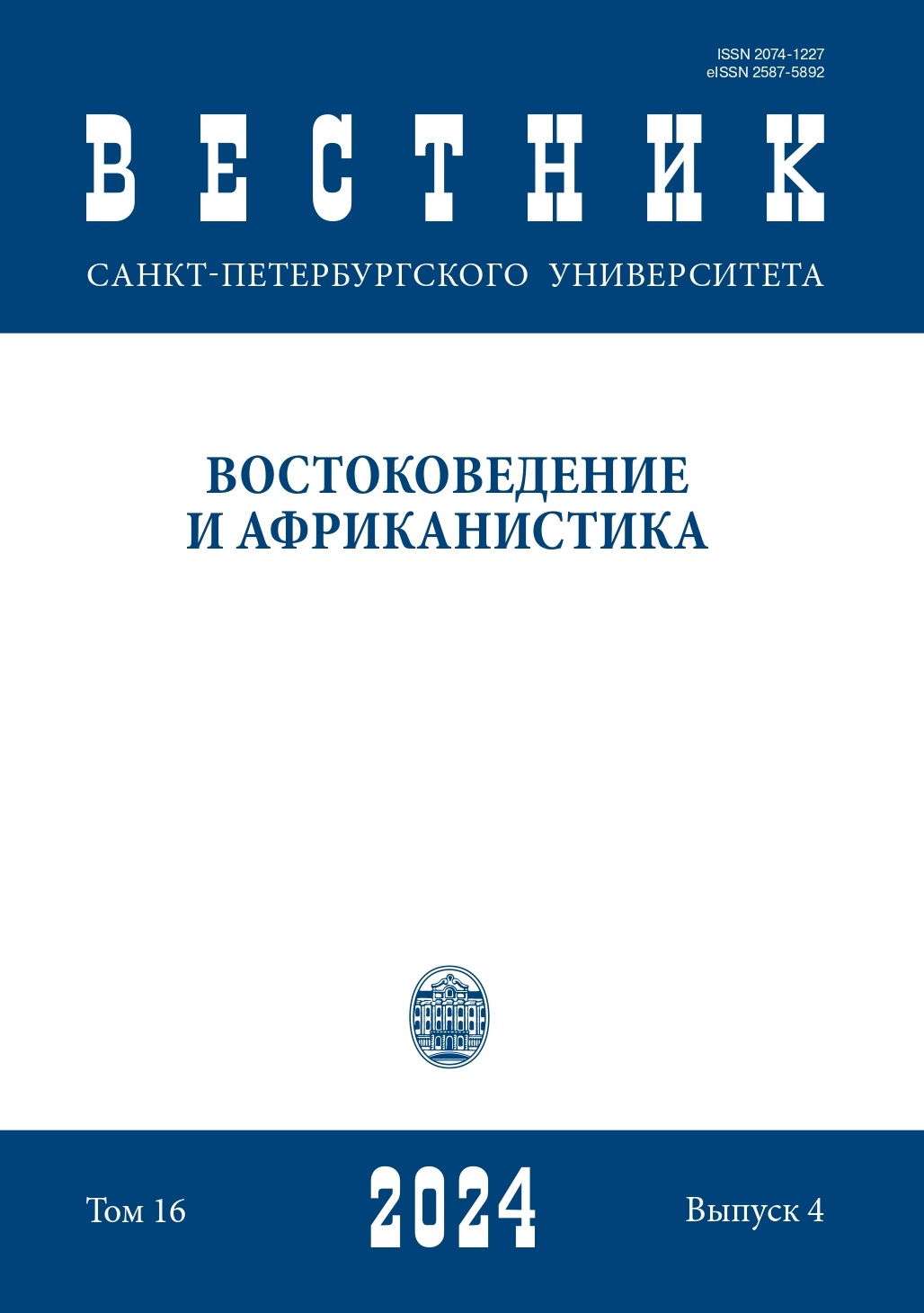Historical and Ethnographic Heritage of the Expedition of A. N. Krasnov in 1895: The Eastern Himalayas (Based on the Researcher’s Report)
DOI:
https://doi.org/10.21638/spbu13.2024.401Abstract
An analysis of the ethnographic description of the Eastern Himalaya region is presented, based on the report of the Russian explorer, geographer and traveler Andrei Krasnov, who visited the territory of British Sikkim with a scientific expedition in 1895. The expedition of the Russian scientist was complex in nature, and in his two-volume report for the Main Directorate of Appanages, “Tea districts of the tropical regions of Asia. Cultural and Geographical Sketches of the Far East” (1897–1898), written based on the results of his travels through the Far East, the researcher devotes significant space to an overview of the way of life, traditions, culture and religion of the peoples of the territories he visited. The scientist’s work describes the Mech, Lepcha, Limbu, Bhutia peoples, Nepalese and Tibetans, as well as the religion widespread in the Eastern Himalayas, Tibetan Buddhism. In this study, for the first time, the ethnographic information contained in the report of A.Krasnov is analyzed and a comparative analysis of the source and earlier works of British scientists on the same topic is carried out. The completed research allows us to draw a conclusion about the significance of this source for Russian science, to identify the novelty of the information presented in the work of the Russian scientist regarding the ethnography of the Eastern Himalayas, and also to evaluate the historical and ethnographic heritage of A.Krasnov’s expedition to this region.
Keywords:
Andrei Krasnov, Eastern Himalayas, ethnography of India, historical source, Tibetan Buddhism, scientific expedition
Downloads
References
Downloads
Published
How to Cite
Issue
Section
License
Articles of "Vestnik of Saint Petersburg University. Asian and African Studies" are open access distributed under the terms of the License Agreement with Saint Petersburg State University, which permits to the authors unrestricted distribution and self-archiving free of charge.





